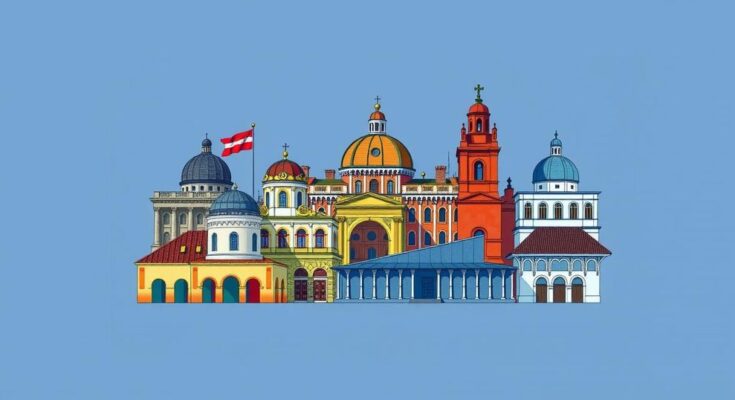Emory University and Greece’s Ministry of Culture signed a cultural cooperation agreement, enhancing educational opportunities while facilitating the return of three artifacts to Greece. Minister Lina Mendoni discussed collaboration with Emory leaders, highlighting the importance of ethical scholarship and cultural preservation. This partnership aims to expand archaeological opportunities for students and enhance community engagement through future exhibitions.
Emory University and the Ministry of Culture of the Hellenic Republic have embarked on a collaborative journey through a long-term cultural cooperation agreement signed on January 22. This groundbreaking pact promises to enhance academic opportunities for students while paving the way for the return of three significant artifacts from the Michael C. Carlos Museum’s collection back to Greece. Lina Mendoni, the Greek Minister of Culture, journeyed to Atlanta to explore the Carlos Museum and engage with Emory’s leadership, including Provost Ravi V. Bellamkonda. Their discussions culminated in an agreement that not only deepens ties between the institutions but also emphasizes the joint commitment to preserving and promoting Greek cultural heritage. The agreement entails sending back a Minoan larnax, a Classical sculpture representing a seated man, and a sculpture of a muse. This decision, rooted in two years of dialogue, aligns with the museum’s ongoing efforts to research the origins of its artifacts and address provenance issues, particularly those connected to past antiquities trafficking cases in Greece. Mendoni expressed her gratitude for the Carlos Museum’s decision, remarking on the artifacts’ illegal export status. She anticipates this act of repatriation will usher in a new era of cultural cooperation between the Ministry and Emory, inspiring other museums worldwide to engage in open, collaborative practices regarding their collections. The agreement promises to expand opportunities for Emory’s community to partake in archaeological excavations in Greece, building on previous experiences at historic sites such as Samothrace and the Agora in Athens. Bellamkonda reflected on the university’s dedication to championing Greek culture in the southeastern US and recognized the historic nature of the agreement, highlighting the commitment to ethical scholarship and collaboration. Moreover, the Carlos Museum looks forward to future collaborations with Greek museums to facilitate the loan of exhibits and possibly showcase enriching exhibitions for both Emory and the greater Atlanta community. Henry S. Kim, director of the Carlos Museum, expressed optimism for ongoing cultural engagement, reinforcing the museum’s role in protecting and preserving art and heritage worldwide.
The cultural cooperation agreement between Emory University and the Ministry of Culture of the Hellenic Republic signifies a historic alignment aimed at advancing the appreciation and protection of Greek cultural heritage. This collaboration emerges against a backdrop of increasing scrutiny on the provenance of artifacts and a shared commitment to returning previously acquired items that lack clear legal ownership. The two institutions have expressed a willingness to foster educational partnerships and support archaeological efforts in Greece, enhancing the academic experience for students and faculty.
The recent agreement between Emory University and the Ministry of Culture of the Hellenic Republic not only symbolizes their commitment to preserving cultural heritage but also sets the stage for enriching collaborations in the years to come. By returning artifacts and establishing educational opportunities, both parties are paving the way for greater understanding and appreciation of Greek culture. This initiative may inspire others globally, promoting a spirit of cooperation and dialogue.
Original Source: news.emory.edu



